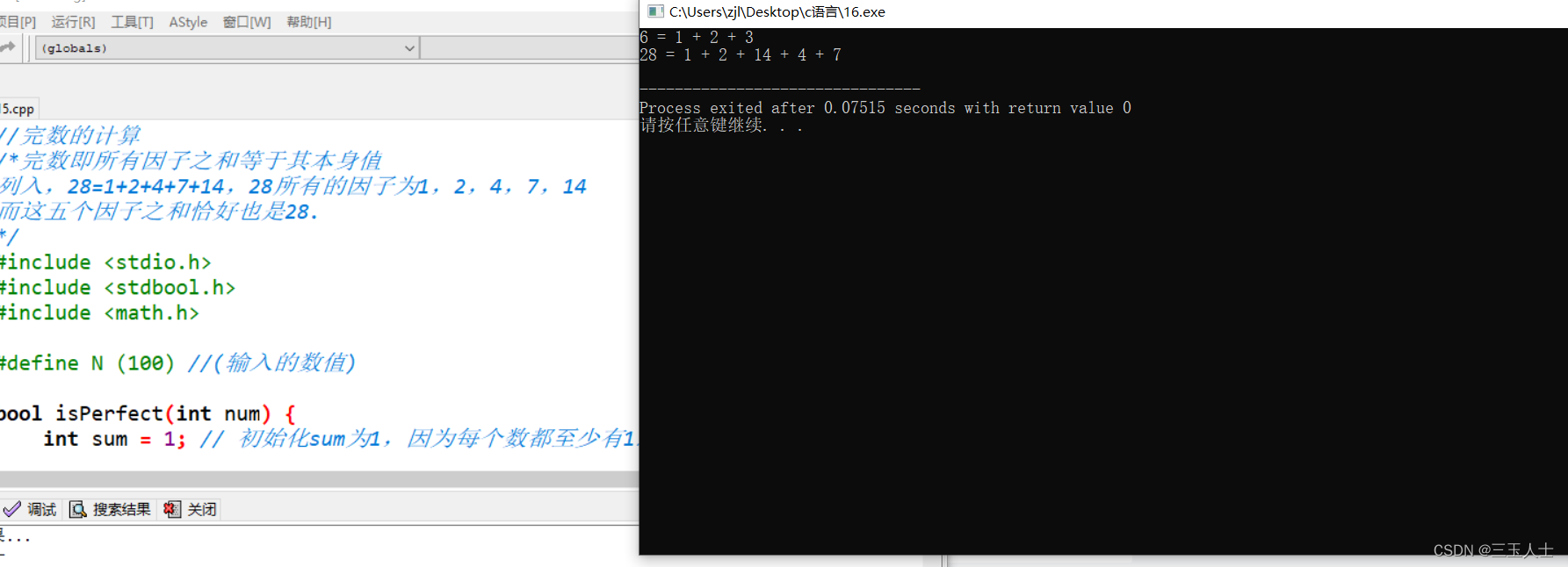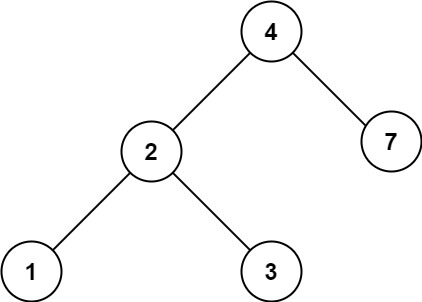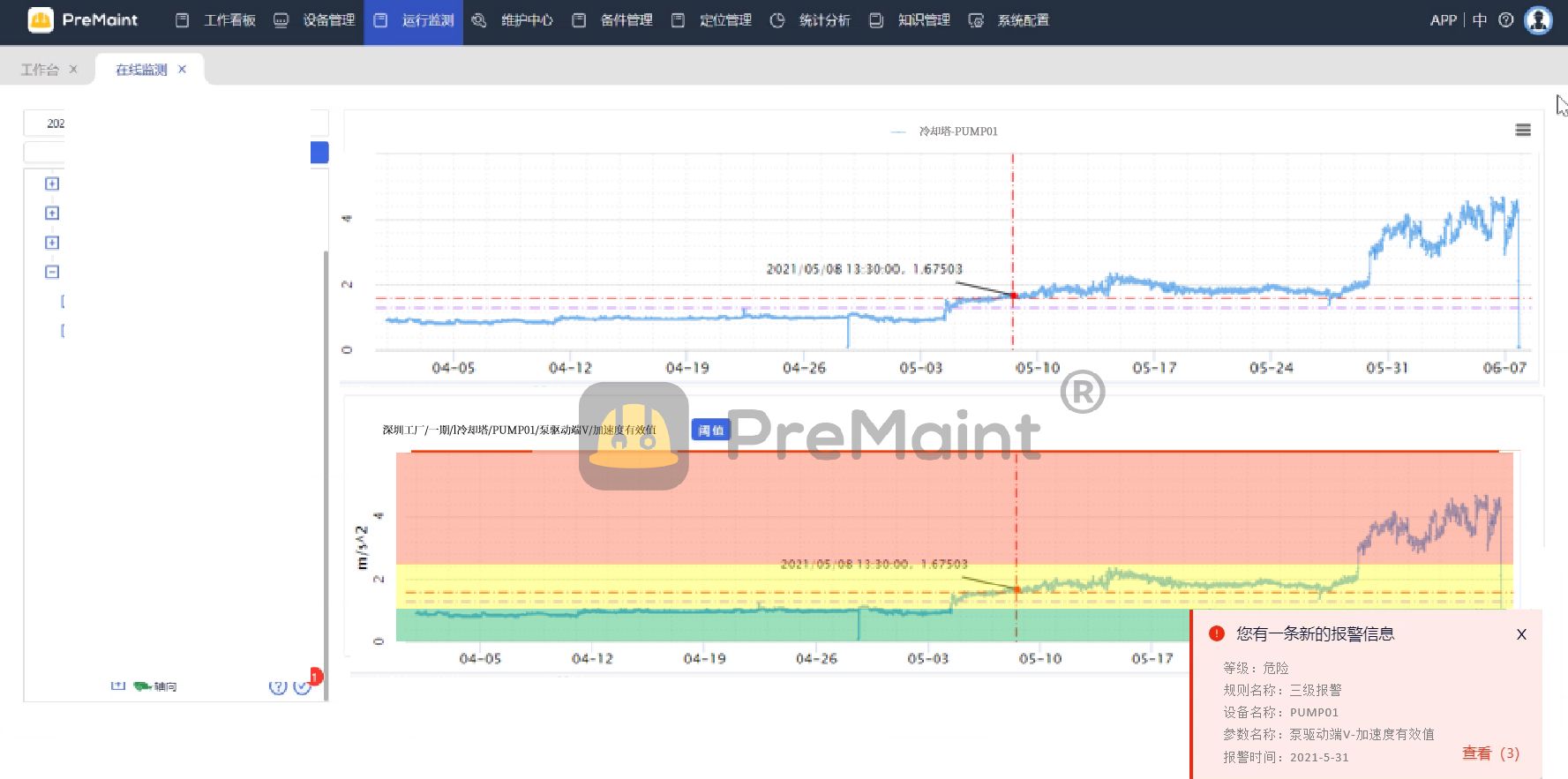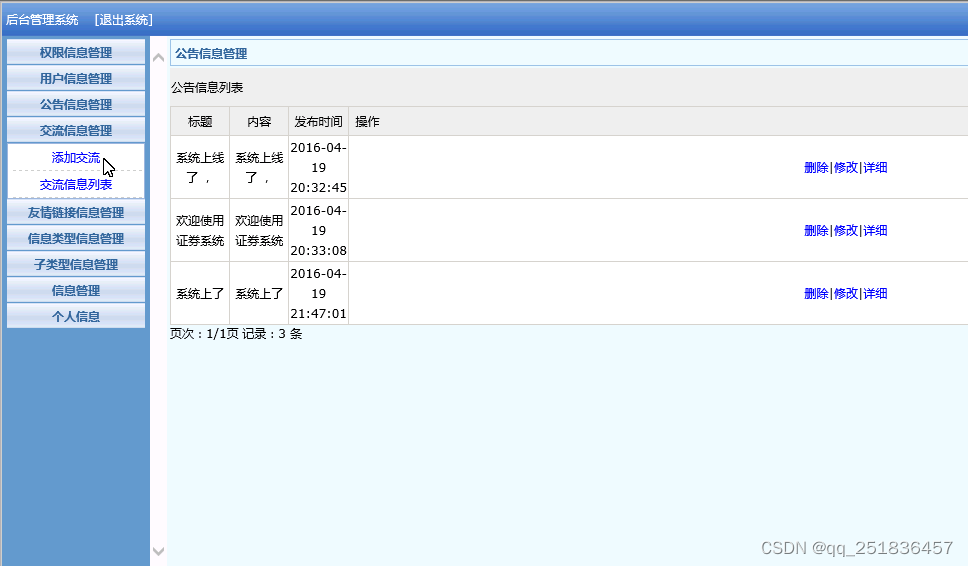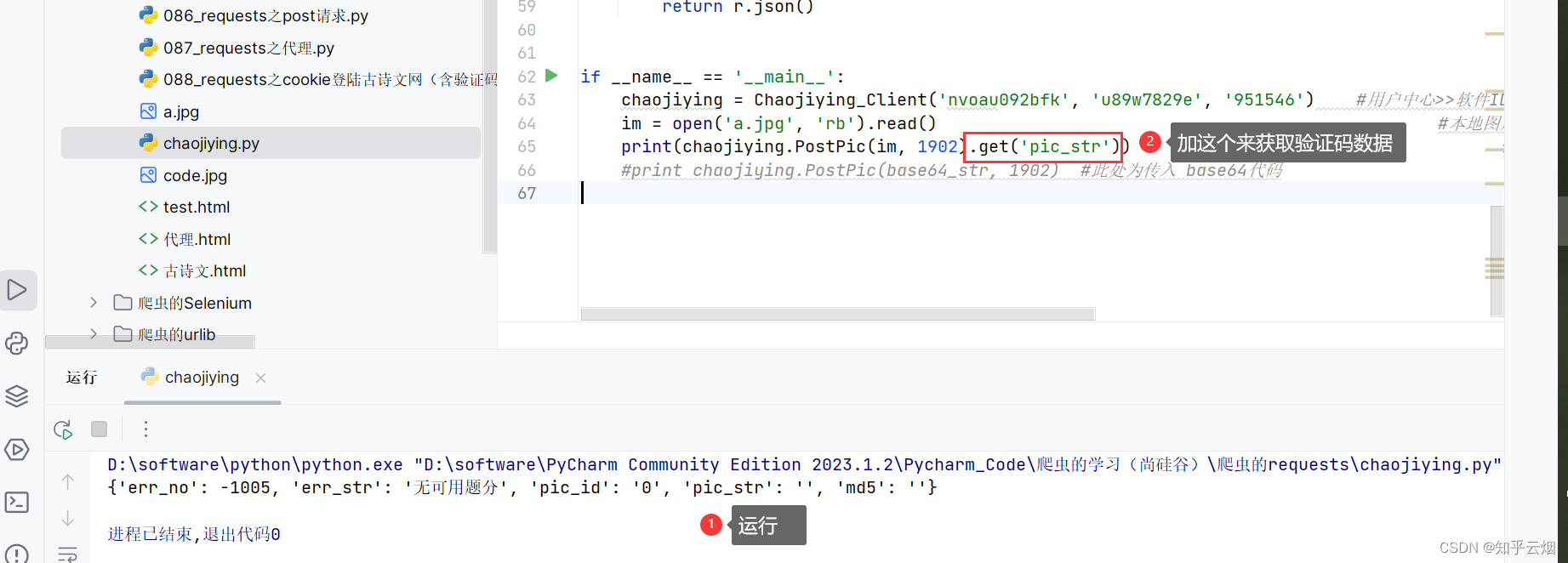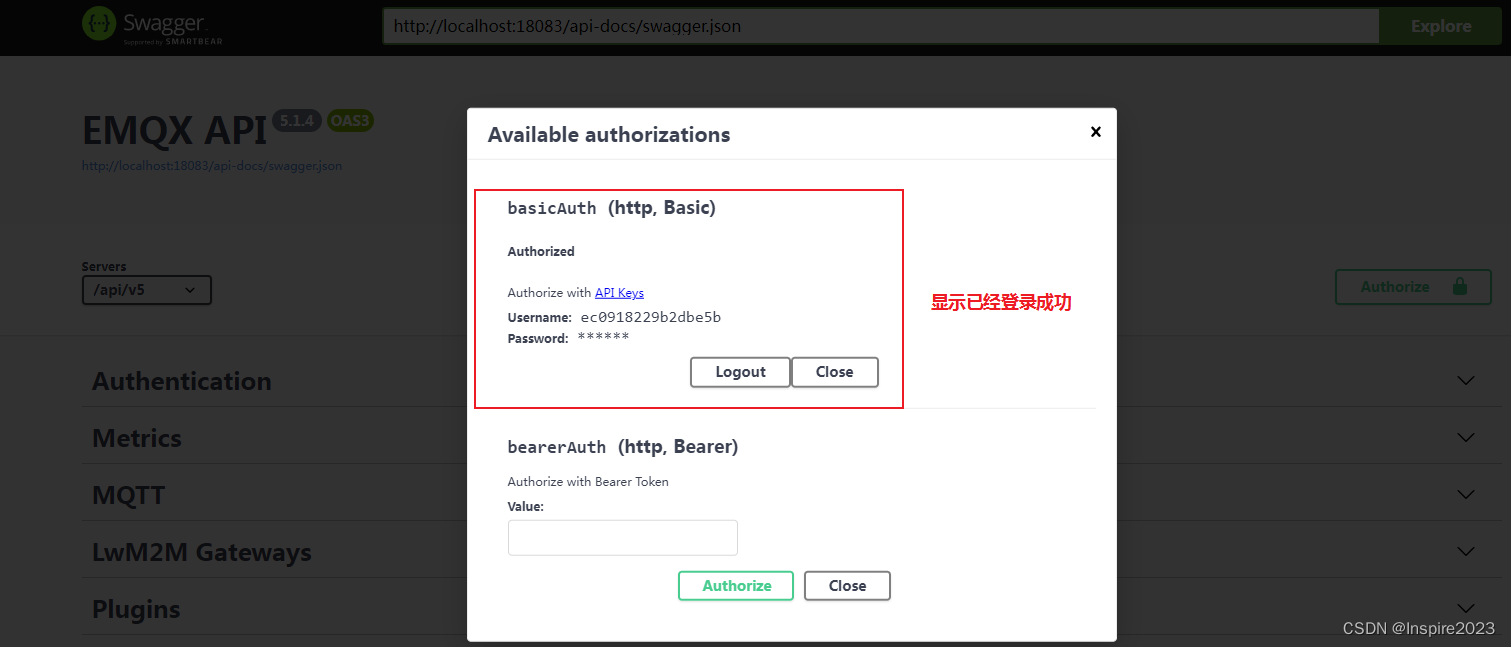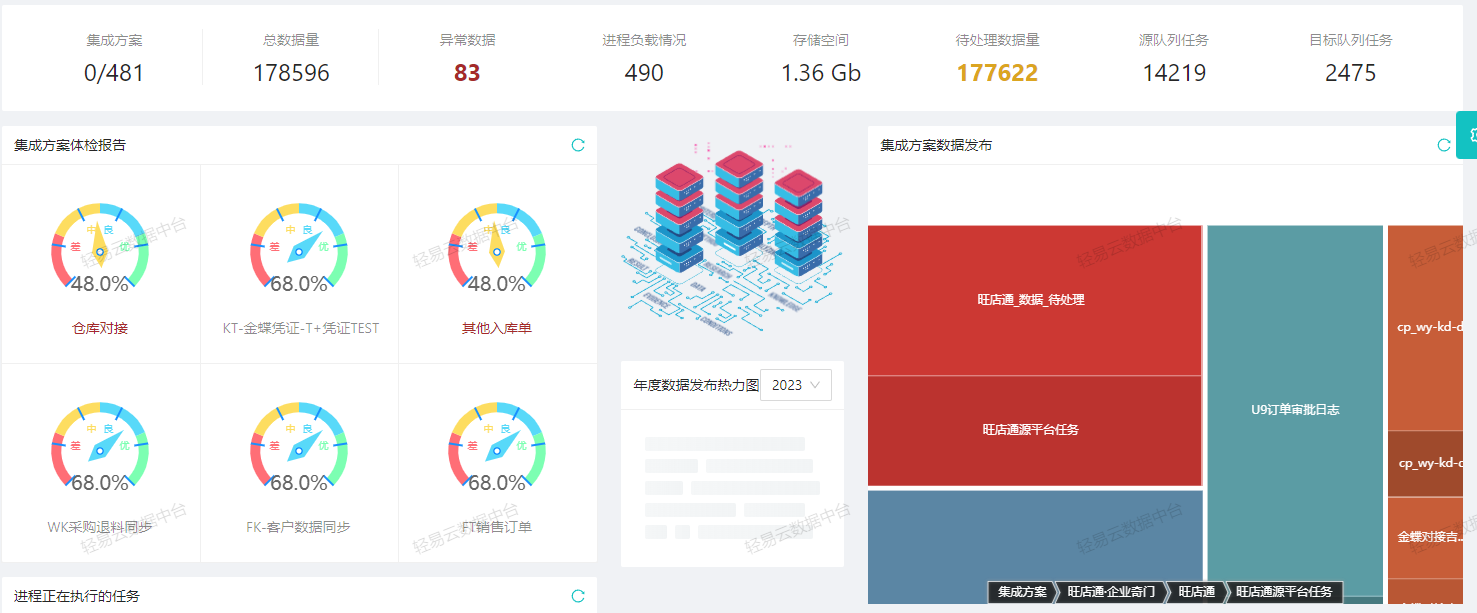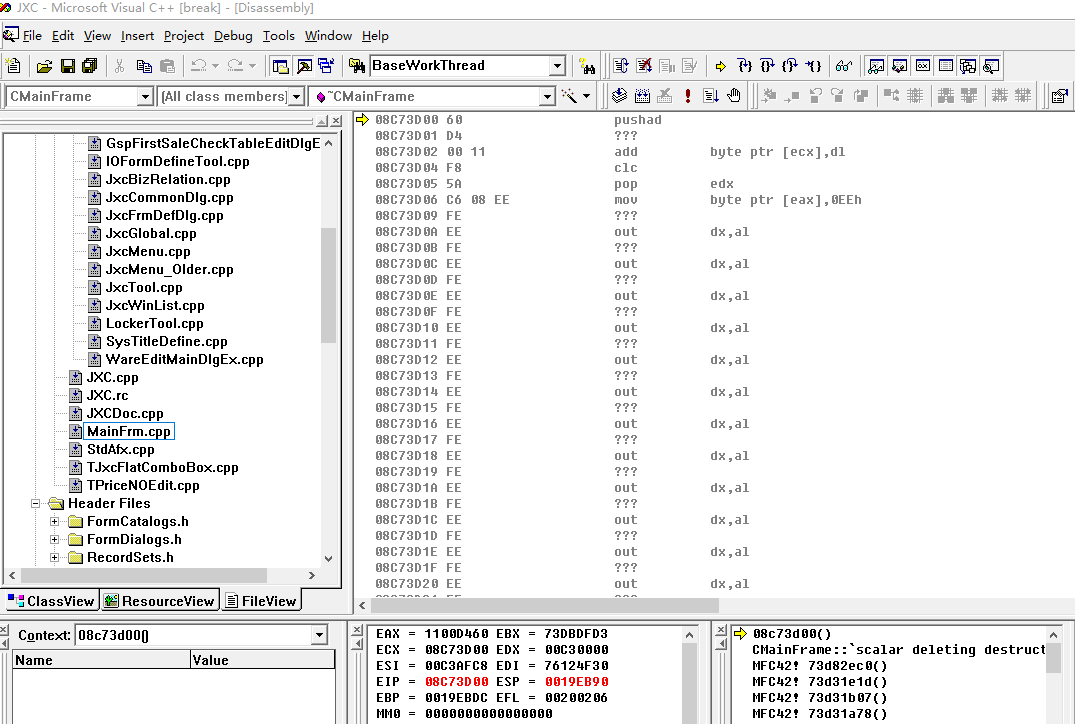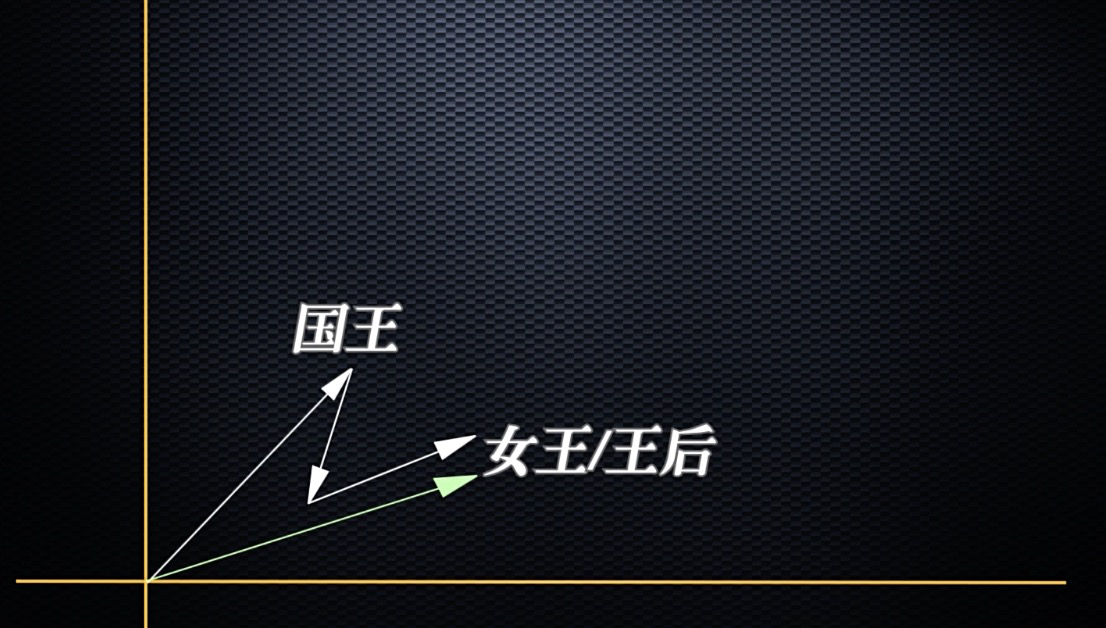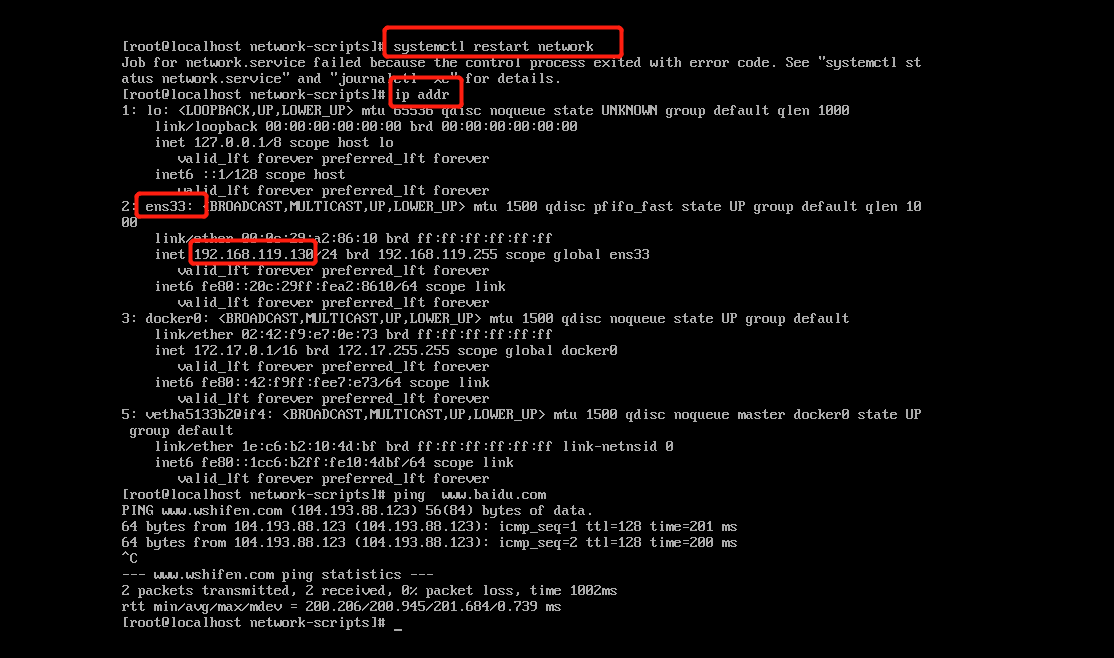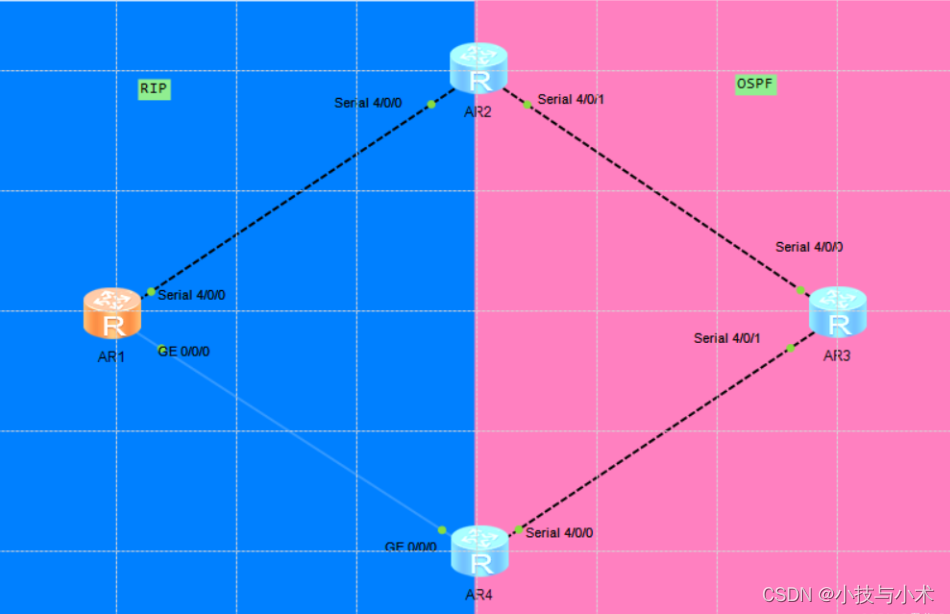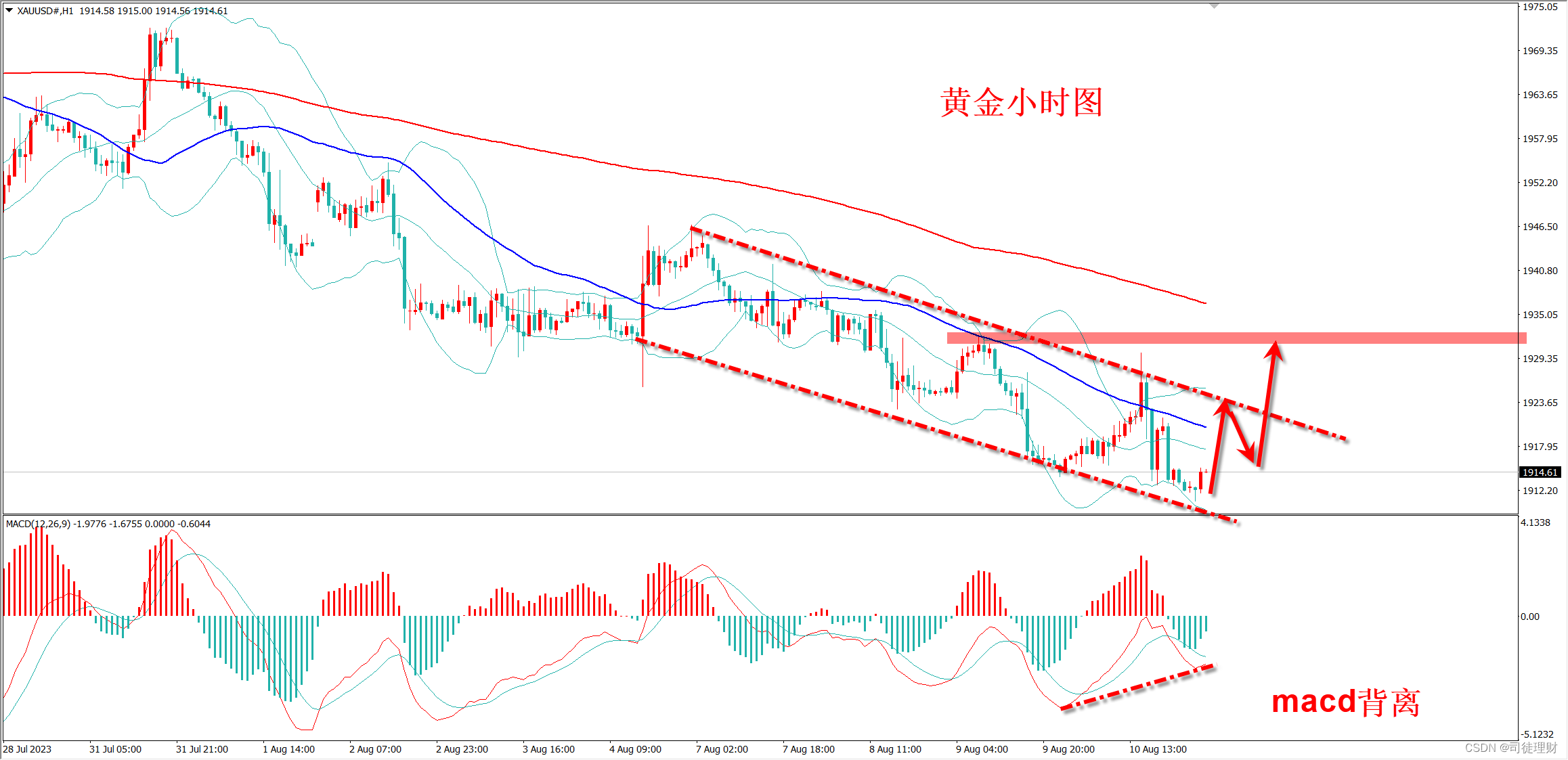屏幕介绍
本文以中景园
1.69寸LCD,驱动芯片ST7789V2该款屏幕示例,屏幕的分辨率为240*280
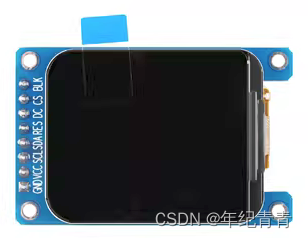
屏幕引脚说明
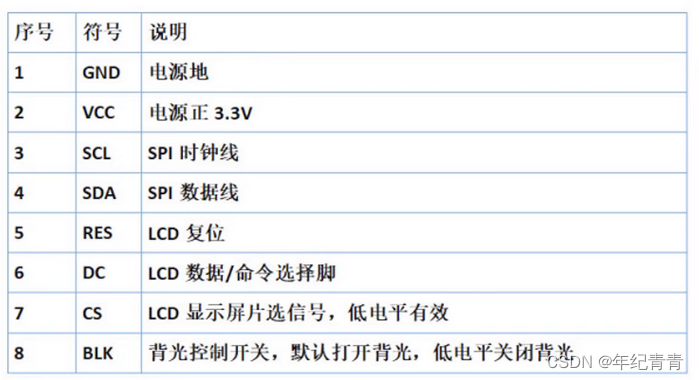
NanoPi NEO IO介绍
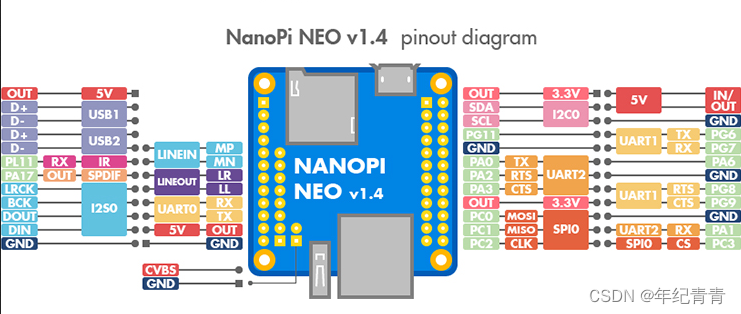
屏幕与板子的IO连接关系
| 屏幕 | NanoPi NEO |
|---|---|
| GND | GND |
| VCC | 3.3V |
| SCL | PC2 |
| SDA | PC0 |
| RES | PG11 |
| DC | PA1 |
| CS | PC3 |
| BLK | PA0 |
下载交叉编译器和linux内核源码并按教程配置好开发环境
参考友善官方链接:Building U-boot and Linux for H5/H3/H2+/zh
修改设备树
需要修改的设备树文件路径:
linux/arch/arm/boot/dts/sun8i-h3-nanopi.dtsi
找到其中spi0节点,修改为如下:
&spi0 {
/* needed to avoid dtc warning */
#address-cells = <1>;
#size-cells = <0>;
status = "okay";
pinctrl-names = "default";
pinctrl-0 = <&spi0_pins &spi0_cs_pins>;
cs-gpios = <&pio 2 3 GPIO_ACTIVE_HIGH>, <&pio 0 6 GPIO_ACTIVE_HIGH>;
spidev0: spi@0 {
compatible = "nanopi,spidev";
reg = <0>;
status = "disabled";
spi-max-frequency = <10000000>;
};
spiflash: spiflash@0 {
#address-cells = <1>;
#size-cells = <1>;
compatible = "mxicy,mx25l12805d";
reg = <0>;
status = "disabled";
spi-max-frequency = <50000000>;
mode = <0>;
partition@0 {
reg = <0x0 0x1000000>;
label = "spi-flash";
};
};
pitft: pitft@0{
compatible = "sitronix,st7789v";
reg = <0>;
status = "okay"; /* 使能 */
spi-max-frequency = <96000000>; /* 修改了默认速度 */
rotate = <90>;/* 初始默认旋转了90度 横屏 */
fps = <33>;
buswidth = <8>;
dc-gpios = <&pio 0 1 GPIO_ACTIVE_HIGH>; /* PA1 */
reset-gpios = <&pio 6 11 GPIO_ACTIVE_HIGH>; /* PG11 */
led-gpios = <&pio 0 0 GPIO_ACTIVE_LOW>; /* PA0 */
debug = <0x0>;
};
pitft_ts: pitft-ts@1 {
compatible = "ti,ads7846";
reg = <1>;
status = "disabled";
spi-max-frequency = <2000000>;
interrupt-parent = <&pio>;
interrupts = <6 9 IRQ_TYPE_EDGE_FALLING>; /* PG9 / EINT9 */
pendown-gpio = <&pio 6 9 GPIO_ACTIVE_LOW>;
ti,swap-xy;
ti,vref-delay-usecs = <1000>;
ti,x-min = /bits/ 16 <100>;
ti,x-max = /bits/ 16 <0xfff>;
ti,y-min = /bits/ 16 <100>;
ti,y-max = /bits/ 16 <0xfff>;
ti,vref-mv = <3300>;
ti,x-plate-ohms = /bits/ 16 <256>;
ti,penirq-recheck-delay-usecs = <10>;
ti,settle-delay-usec = /bits/ 16 <100>;
ti,keep-vref-on = <1>;
ti,pressure-max = /bits/ 16 <0xfff>;
ti,debounce-max = <10>;
ti,debounce-tol = <30>;
ti,debounce-rep = <1>;
};
};
找到pio节点,添加屏幕其它控制引脚的io
&pio {
leds_npi: led_pins {
pins = "PA10";
function = "gpio_out";
};
lcd_reset_pins: lcd_reset_pins {
pins = "PG11";
function = "gpio_out";
};
lcd_dc_pins: lcd_dc_pins {
pins = "PA1";
function = "gpio_out";
};
lcd_led_pins: lcd_led_pins {
pins = "PA0";
function = "gpio_out";
};
spi0_cs_pins: spi0_cs_pins {
pins = "PC3", "PA6";
function = "gpio_out";
};
};
禁用hdmi音频视频输出,否则屏幕不显示
&hdmi {
#status = "okay";
status = "disabled";
};
&hdmi_out {
hdmi_out_con: endpoint {
remote-endpoint = <&hdmi_con_in>;
};
};
&sound_hdmi {
#status = "okay";
status = "disabled";
};
修改驱动文件
linux/drivers/staging/fbtft/路径下,找到fb_st7789v.c,根据自己屏幕情况修改相关参数本人移植时,出现屏幕颜色不对,坐标偏移等情况,根据中景园提供的驱动程序对该文件进行了一定修改,本人用途屏幕旋转90度横屏使用,只做了横屏坐标校准,其它旋转角度下坐标不准只需要修改set_addr_win函数内的坐标偏移即可,至此代码修改内容全部完成
/*
* FB driver for the ST7789V LCD Controller
*
* Copyright (C) 2015 Dennis Menschel
*
* This program is free software; you can redistribute it and/or modify
* it under the terms of the GNU General Public License as published by
* the Free Software Foundation; either version 2 of the License, or
* (at your option) any later version.
*
* This program is distributed in the hope that it will be useful,
* but WITHOUT ANY WARRANTY; without even the implied warranty of
* MERCHANTABILITY or FITNESS FOR A PARTICULAR PURPOSE. See the
* GNU General Public License for more details.
*/
#include <linux/bitops.h>
#include <linux/delay.h>
#include <linux/init.h>
#include <linux/kernel.h>
#include <linux/module.h>
#include <video/mipi_display.h>
#include <linux/gpio.h>
#include "fbtft.h"
#define DRVNAME "fb_st7789v"
#define DEFAULT_GAMMA \
"70 2C 2E 15 10 09 48 33 53 0B 19 18 20 25\n" \
"70 2C 2E 15 10 09 48 33 53 0B 19 18 20 25"
/**
* enum st7789v_command - ST7789V display controller commands
*
* @PORCTRL: porch setting
* @GCTRL: gate control
* @VCOMS: VCOM setting
* @VDVVRHEN: VDV and VRH command enable
* @VRHS: VRH set
* @VDVS: VDV set
* @VCMOFSET: VCOM offset set
* @PWCTRL1: power control 1
* @PVGAMCTRL: positive voltage gamma control
* @NVGAMCTRL: negative voltage gamma control
*
* The command names are the same as those found in the datasheet to ease
* looking up their semantics and usage.
*
* Note that the ST7789V display controller offers quite a few more commands
* which have been omitted from this list as they are not used at the moment.
* Furthermore, commands that are compliant with the MIPI DCS have been left
* out as well to avoid duplicate entries.
*/
enum st7789v_command {
PORCTRL = 0xB2,
GCTRL = 0xB7,
VCOMS = 0xBB,
VDVVRHEN = 0xC2,
VRHS = 0xC3,
VDVS = 0xC4,
VCMOFSET = 0xC5,
PWCTRL1 = 0xD0,
PVGAMCTRL = 0xE0,
NVGAMCTRL = 0xE1,
};
#define MADCTL_BGR BIT(3) /* bitmask for RGB/BGR order */
#define MADCTL_MV BIT(5) /* bitmask for page/column order */
#define MADCTL_MX BIT(6) /* bitmask for column address order */
#define MADCTL_MY BIT(7) /* bitmask for page address order */
/**
* init_display() - initialize the display controller
*
* @par: FBTFT parameter object
*
* Most of the commands in this init function set their parameters to the
* same default values which are already in place after the display has been
* powered up. (The main exception to this rule is the pixel format which
* would default to 18 instead of 16 bit per pixel.)
* Nonetheless, this sequence can be used as a template for concrete
* displays which usually need some adjustments.
*
* Return: 0 on success, < 0 if error occurred.
*/
static int init_display(struct fbtft_par *par)
{
/* turn off sleep mode */
write_reg(par, MIPI_DCS_EXIT_SLEEP_MODE);
mdelay(120);
#if 0
/* set pixel format to RGB-565 */
write_reg(par, MIPI_DCS_SET_PIXEL_FORMAT, MIPI_DCS_PIXEL_FMT_16BIT);
write_reg(par, PORCTRL, 0x08, 0x08, 0x00, 0x22, 0x22);
/*
* VGH = 13.26V
* VGL = -10.43V
*/
write_reg(par, GCTRL, 0x35);
/*
* VDV and VRH register values come from command write
* (instead of NVM)
*/
write_reg(par, VDVVRHEN, 0x01, 0xFF);
/*
* VAP = 4.1V + (VCOM + VCOM offset + 0.5 * VDV)
* VAN = -4.1V + (VCOM + VCOM offset + 0.5 * VDV)
*/
write_reg(par, VRHS, 0x0B);
/* VDV = 0V */
write_reg(par, VDVS, 0x20);
/* VCOM = 0.9V */
write_reg(par, VCOMS, 0x20);
/* VCOM offset = 0V */
write_reg(par, VCMOFSET, 0x20);
/*
* AVDD = 6.8V
* AVCL = -4.8V
* VDS = 2.3V
*/
write_reg(par, PWCTRL1, 0xA4, 0xA1);
write_reg(par, MIPI_DCS_SET_DISPLAY_ON);
#endif
write_reg(par, 0x3A,0x05);
write_reg(par, 0xB2,0x0C,0x0C,0x00,0x33,0x33);
write_reg(par, 0xB7,0x35);
write_reg(par, 0xBB,0x32);
write_reg(par, 0xC2,0x01);
write_reg(par, 0xC3,0x15);
write_reg(par, 0xC4,0x20);
write_reg(par, 0xC6,0x0F);
write_reg(par, 0xD0,0xA4,0xA1);
write_reg(par,PVGAMCTRL,0xD0,0x08,0x0E,0x09,0x09,0x05,0x31,0x33,0x48,0x17,0x14,0x15,0x31,0x34);
write_reg(par,NVGAMCTRL, 0xD0,0x08,0x0E,0x09,0x09,0x15,0x31,0x33,0x48,0x17,0x14,0x15,0x31,0x34);
write_reg(par,0x21);
write_reg(par,0x29);
return 0;
}
/**
* set_var() - apply LCD properties like rotation and BGR mode
*
* @par: FBTFT parameter object
*
* Return: 0 on success, < 0 if error occurred.
*/
static int set_var(struct fbtft_par *par)
{
u8 madctl_par = 0;
if (par->bgr)
madctl_par |= MADCTL_BGR;
switch (par->info->var.rotate) {
case 0:
break;
case 90:
madctl_par |= (MADCTL_MV | MADCTL_MY);
break;
case 180:
madctl_par |= (MADCTL_MX | MADCTL_MY);
break;
case 270:
madctl_par |= (MADCTL_MV | MADCTL_MX);
break;
default:
return -EINVAL;
}
write_reg(par, MIPI_DCS_SET_ADDRESS_MODE, madctl_par);
return 0;
}
/**
* set_gamma() - set gamma curves
*
* @par: FBTFT parameter object
* @curves: gamma curves
*
* Before the gamma curves are applied, they are preprocessed with a bitmask
* to ensure syntactically correct input for the display controller.
* This implies that the curves input parameter might be changed by this
* function and that illegal gamma values are auto-corrected and not
* reported as errors.
*
* Return: 0 on success, < 0 if error occurred.
*/
static int set_gamma(struct fbtft_par *par, u32 *curves)
{
int i;
int j;
int c; /* curve index offset */
/*
* Bitmasks for gamma curve command parameters.
* The masks are the same for both positive and negative voltage
* gamma curves.
*/
static const u8 gamma_par_mask[] = {
0xFF, /* V63[3:0], V0[3:0]*/
0x3F, /* V1[5:0] */
0x3F, /* V2[5:0] */
0x1F, /* V4[4:0] */
0x1F, /* V6[4:0] */
0x3F, /* J0[1:0], V13[3:0] */
0x7F, /* V20[6:0] */
0x77, /* V36[2:0], V27[2:0] */
0x7F, /* V43[6:0] */
0x3F, /* J1[1:0], V50[3:0] */
0x1F, /* V57[4:0] */
0x1F, /* V59[4:0] */
0x3F, /* V61[5:0] */
0x3F, /* V62[5:0] */
};
for (i = 0; i < par->gamma.num_curves; i++) {
c = i * par->gamma.num_values;
for (j = 0; j < par->gamma.num_values; j++)
curves[c + j] &= gamma_par_mask[j];
write_reg(
par, PVGAMCTRL + i,
curves[c + 0], curves[c + 1], curves[c + 2],
curves[c + 3], curves[c + 4], curves[c + 5],
curves[c + 6], curves[c + 7], curves[c + 8],
curves[c + 9], curves[c + 10], curves[c + 11],
curves[c + 12], curves[c + 13]);
}
return 0;
}
static void set_addr_win(struct fbtft_par *par, int xs, int ys, int xe, int ye)
{
switch(par->info->var.rotate)
{
case 0: xs+=0;xe+=0;ys+=0;ye+=0;
break;
case 90: xs+=20;xe+=20;ys+=0;ye+=0;
break;
case 180: xs+=0;xe+=0;ys+=80;ye+=80;
break;
case 270: xs+=0;xe+=0;ys+=53;ye+=53;
break;
default :
break;
}
write_reg(par, MIPI_DCS_SET_COLUMN_ADDRESS,
xs >> 8, xs & 0xFF, xe >> 8, xe & 0xFF);
write_reg(par, MIPI_DCS_SET_PAGE_ADDRESS,
ys >> 8, ys & 0xFF, ye >> 8, ye & 0xFF);
write_reg(par, MIPI_DCS_WRITE_MEMORY_START);
}
/**
* blank() - blank the display
*
* @par: FBTFT parameter object
* @on: whether to enable or disable blanking the display
*
* Return: 0 on success, < 0 if error occurred.
*/
static int blank(struct fbtft_par *par, bool on)
{
if (on)
write_reg(par, MIPI_DCS_SET_DISPLAY_OFF);
else
write_reg(par, MIPI_DCS_SET_DISPLAY_ON);
return 0;
}
static struct fbtft_display display = {
.regwidth = 8,
.width = 240,
.height = 280,
.gamma_num = 2,
.gamma_len = 14,
.gamma = DEFAULT_GAMMA,
.fbtftops = {
.init_display = init_display,
.set_var = set_var,
.set_addr_win = set_addr_win,
.set_gamma = set_gamma,
.blank = blank,
},
};
FBTFT_REGISTER_DRIVER(DRVNAME, "sitronix,st7789v", &display);
MODULE_ALIAS("spi:" DRVNAME);
MODULE_ALIAS("platform:" DRVNAME);
MODULE_ALIAS("spi:st7789v");
MODULE_ALIAS("platform:st7789v");
MODULE_DESCRIPTION("FB driver for the ST7789V LCD Controller");
MODULE_AUTHOR("Dennis Menschel");
MODULE_LICENSE("GPL");
使用menuconfig使能该驱动
在
linux源码根目录下执行
make menuconfig ARCH=arm CROSS_COMPILE=arm-linux-
Device Drivers --->
[*] Staging drivers --->
<*> Support for small TFT LCD display modules --->
<*> FB driver for the ST7789V LCD Controller
编译内核设备树
# 编译内核、设备树、模块
make zImage dtbs modules ARCH=arm CROSS_COMPILE=arm-linux-
更新板子内核和设备树文件
将
arch/arm/boot/zImage内核镜像文件和arch/arm/boot/dts/sun8i-h3-nanopi-neo.dtb设备树文件拷贝到板子的/boot目录下,使用内存卡拷贝或者网络传输都可以,这里以网络更新为例
scp arch/arm/boot/zImage root@192.168.31.88:/boot
scp arch/arm/boot/dts/sun8i-h3-nanopi-neo.dtb root@192.168.31.88:/boot
重启板子后屏幕可以出现内核启动和linux终端画面
这里开机logo已经修改,原系统是三只linux企鹅图标


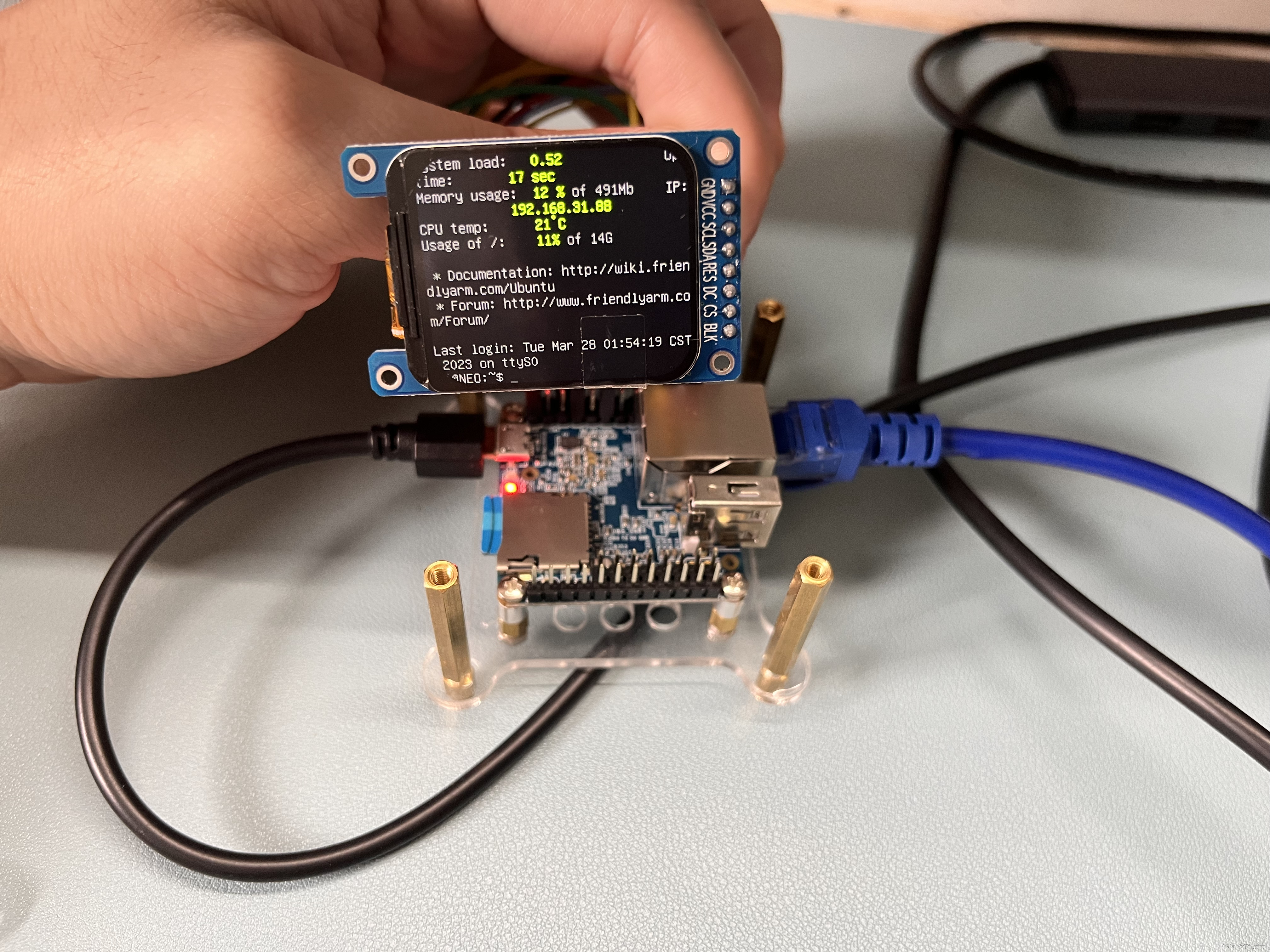
后期玩法
画一张带屏幕的接口板与板子组合成一体,可以移植
lvgl或者QT,真正变成一个小电脑
参考链接:NanoPi NEO Air使用十二:使用自带的fbtft驱动点亮SPI接口TFT屏幕,ST7789V
